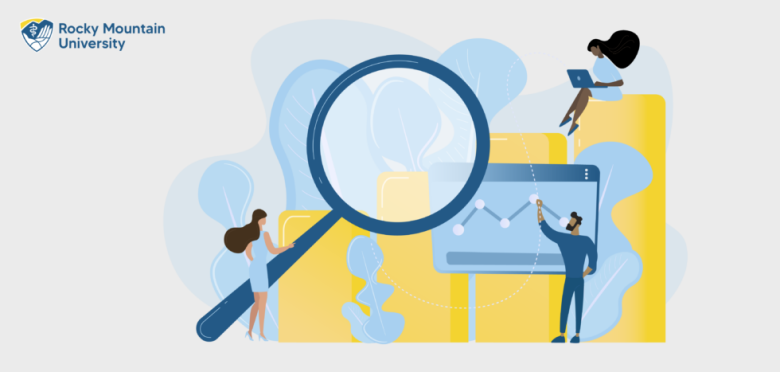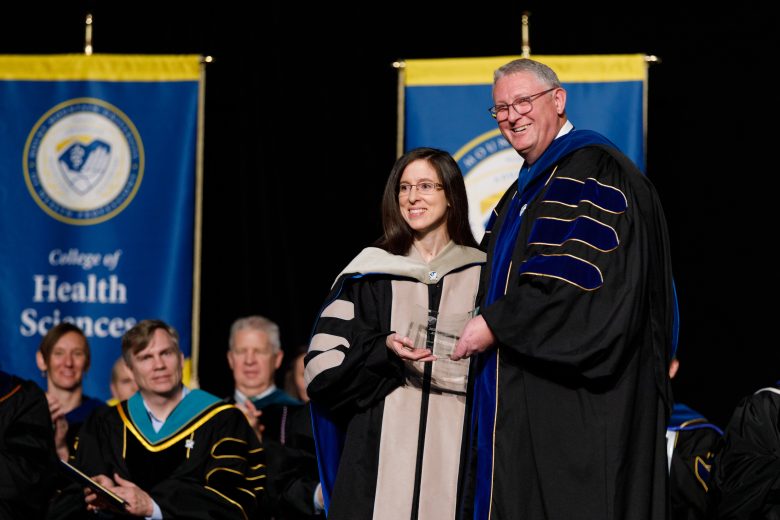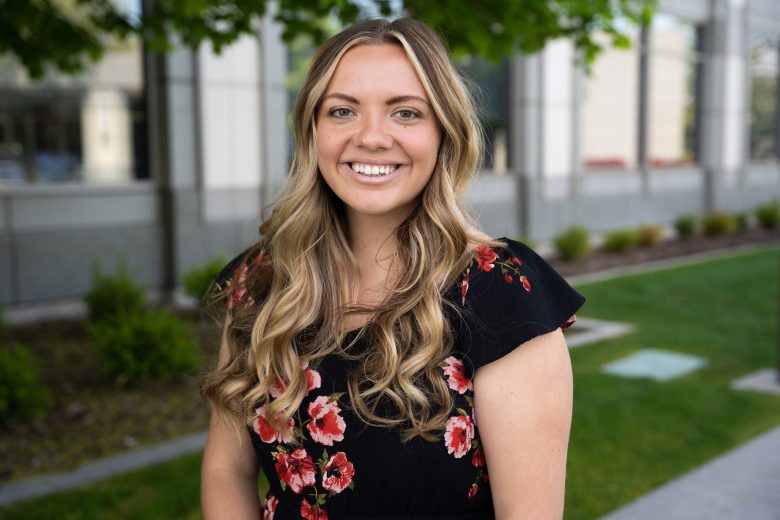The decision to go into the medical field was quite personal for Rocky Mountain University of Health Professions (RMU) student Rocio Martinez. Her desire to follow this route began several years ago when her father was diagnosed with a cerebral tumor that impacted his speech. Seeing the man she loves so much go through a traumatic ordeal and lose his ability to speak and communicate was painful. The fact that there weren’t any speech-language pathologists nearby in Honduras made matters worse.
That heartbreaking scenario sparked Rocio’s desire to learn and become qualified to deliver those necessary medical services in her native country someday. She’s felt the pain families go through when their loved one’s speech is impeded, and knows how difficult it is for everybody involved because they don’t know how to get their needs met. She also hopes to assist Honduras in getting more specialized medical providers to complement the general care available there.
“It’s just more of a personal story for me,” Rocio said. Ultimately, the first-year RMU student hopes to return to Honduras trained and capable “to help the community to know that I am there and I can understand what they’re going through. And go back home and help those families that might go through the same experience that I did and be able to provide speech therapy that is related to any neurological disorder that might have happened to them.”
That led Rocio to enroll in RMU’s Master of Science in Medical Speech-Language Pathology program (MS Med SLP), where she’s enjoying receiving the necessary education along with critical hands-on medical experience to accomplish her goals.
“RMU offers a good program,” she said. “It opened the doors for me and gave me the opportunity to get a little bit more specialized in that field.”

Rocio’s life experiences — gained in the U.S. and in San Pedro Sula, Honduras — put her in a unique position to do a lot of good as she uses her cultural background and medical expertise to help patients, both young and old. She hopes to overcome barriers by providing education in her homeland.
“A lot of those communities do not know what speech-sound disorders are or language-sound disorders,” Rocio said. “They don’t really know how to provide assistance to their kids until they go to their primary care physician, and at the same time, they don’t know what it means that their kid might be delayed in speech. So improving education that we can extend to the community.”
Increased awareness, she believes, will lead to more acceptance and will persuade them to take action and help find and provide proper care for their kids when they’re diagnosed with speech and language disorders.
It’s also important for Rocio to be a well-prepared and competent clinician so she can help families to the best of her abilities. She’s adamant about building relationships with clients.
“I think having those close connections with them could help them trust you in this vulnerable position that they are in their life and this disorder,” she said. “My personal experience has shaped me to become a caring provider, and I think that is one of the most important attributes a healthcare provider can have. How genuine you are can reflect a lot in the families, and you see how much they care for you as well. If you are more caring for each patient, your motivation to help them is going to be higher as well.”
While her medical career is starting in the States — and who knows exactly where it will take her — Rocio feels a pull toward home, where her heart and loved ones are. She wants to return to Honduras eventually to help others. The desire of her heart emulates RMU’s Health Clinics as she wants to provide services to people whether or not they have insurance or can afford it.
“If I ever go back home, it would be more of a community service rather than a career,” Rocio said. “It still would be a career, but it would be more along the lines of providing services without a cost or very minimal cost because the end goal is to help.”



